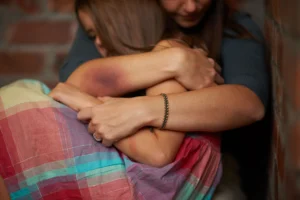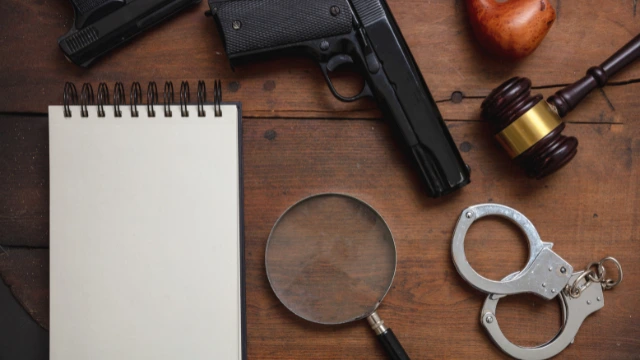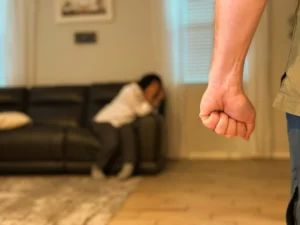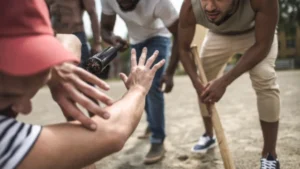

The Real Impact of a Conviction on Your Right to Bear Arms
Imagine waking up one day and realizing that a single mistake from your past now stops you from owning a firearm. For many people with a criminal conviction—especially for domestic violence—the loss of their gun ownership rights comes as a surprise, and getting them back can feel like a legal maze.
The U.S. Constitution protects the right to bear arms, but that right can be taken away under certain circumstances. Criminal convictions, particularly those involving violence, result in legal restrictions on firearm possession. Whether you’re facing charges, just completed a sentence, or trying to regain your rights, understanding how the law works is crucial.
Gun Ownership: How a Conviction Can Cost You Your Second Amendment Rights
For most people, the right to own a firearm is seen as a basic American freedom. But that freedom can be stripped away with a single felony conviction or even some misdemeanors involving domestic violence. Under federal law, individuals convicted of certain crimes are prohibited from possessing firearms.
Federal Firearm Ban for Convicted Individuals
According to the Gun Control Act of 1968, anyone convicted of a felony, or a misdemeanor involving domestic violence, cannot own, possess, or purchase a firearm. This restriction applies nationwide, regardless of the state in which the conviction occurred. Even if your state law says you’re allowed to own a gun, federal law still applies—and violating it can result in another felony charge.
This federal ban also includes:
- Anyone convicted of a crime punishable by more than one year in prison
- Individuals with active restraining orders related to domestic violence or harassment
- Those dishonorably discharged from the military or who have been found mentally incompetent
Once your name is on the federal “prohibited persons” list, gun ownership is off the table unless your rights are legally restored.
Legal Restrictions: Navigating State and Federal Laws
Not all states treat firearm rights the same way. Some states have stricter rules than the federal government, while others have restoration processes in place. It’s this combination of federal and state legal restrictions that makes the issue so confusing.
State-Level Restrictions and Variability
Some states automatically ban firearm possession for anyone convicted of a felony, regardless of the crime. Others make exceptions for non-violent felonies or have shorter waiting periods. Domestic violence convictions are especially impactful. Even a misdemeanor can lead to long-term bans, particularly if the case involves threats, injury, or weapons.
Restoration of Firearm Rights
Restoring gun rights after a conviction often requires going through a formal process:
- Expungement or Sealing of Records: Some states allow records to be sealed or expunged, which may help restore rights.
- Governor’s Pardon: A full pardon can remove civil disabilities like voting and firearm ownership.
- Judicial Relief: In some states, individuals can petition the court to restore their rights after completing their sentence and probation.
The process is not guaranteed, and success often depends on the nature of the original crime, the time since the conviction, and whether any further legal trouble has occurred.
Sentencing Factors: How Your Conviction Affects Your Firearm Rights
When a court imposes a sentence for a criminal conviction, the severity and type of sentence can influence whether and how long firearm rights are lost.
- Felony vs. Misdemeanor: Felony convictions generally result in an automatic federal firearm ban. Misdemeanors only trigger the ban if they involve domestic violence.
- Domestic Violence Enhancements: Even if a charge seems minor, if it’s labeled as domestic, the federal gun ban can apply.
- Protective Orders: If you’re under a restraining order, even temporarily, you may not lawfully own a gun during that period.
- Probation Conditions: Judges may include specific language in probation orders that prohibit firearm possession—even when not required by federal law.
Judges often view firearm access in DV cases as a risk factor, which means gun restrictions are commonly added as a sentencing condition even in borderline cases.
Case Study: Losing—and Reclaiming—Firearm Rights
Case Background
David was convicted of a misdemeanor domestic battery charge after a heated argument with his spouse turned physical. Although it was his first offense, the court issued a restraining order and sentenced him to probation and mandatory anger management classes.
Step 1: Immediate Firearm Ban
Following his conviction, David received notice that he could no longer possess a firearm under both state and federal law. He was required to surrender his hunting rifle and was prohibited from living in a home where firearms were accessible.
Step 2: Completion of Sentence and Waiting Period
David completed his counseling and probation without incident. He wanted to regain his right to hunt and keep a firearm at home for protection. However, the domestic nature of his conviction complicated things.
Step 3: Legal Restoration Process
David hired an attorney and filed a petition for relief under his state’s laws, which allowed restoration for first-time offenders after five years. His lawyer provided documentation of his compliance, stable employment, and good conduct.
Step 4: Court Review and Outcome
After a thorough review, the court granted David’s request. However, federal restrictions still apply. David had to file an additional application for relief through a federal process, which has been defunded in recent years, making it extremely difficult. Ultimately, he had to apply for a gubernatorial pardon.
David’s case shows how complicated restoring gun ownership rights can be and how important it is to understand the legal restrictions at every level.
Frequently Asked Questions (FAQs)
- Can I own a gun if I was convicted of a misdemeanor?
Yes, unless the misdemeanor was domestic violence-related. In that case, federal law prohibits gun ownership. - How long does a firearm ban last after a conviction?
It can be permanent, especially for felonies and domestic violence cases. Restoration requires a separate legal process. - Is it a crime to have a gun in your home if you live with someone else who is prohibited?
Yes. If you’re prohibited, you can’t have access to firearms even if they belong to someone else. - Can a restraining order take away my gun rights?
Yes. An active restraining order can trigger a temporary federal gun ban. - What’s the fastest way to restore my firearm rights?
It depends on your state. Expungement, pardons, or judicial relief are common methods, but each case is unique.



